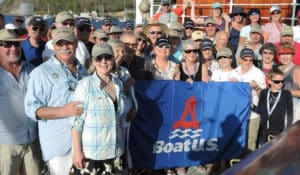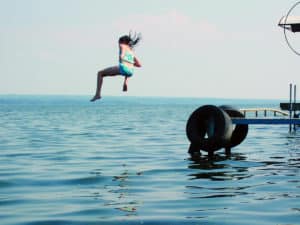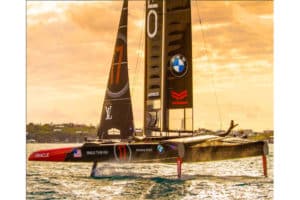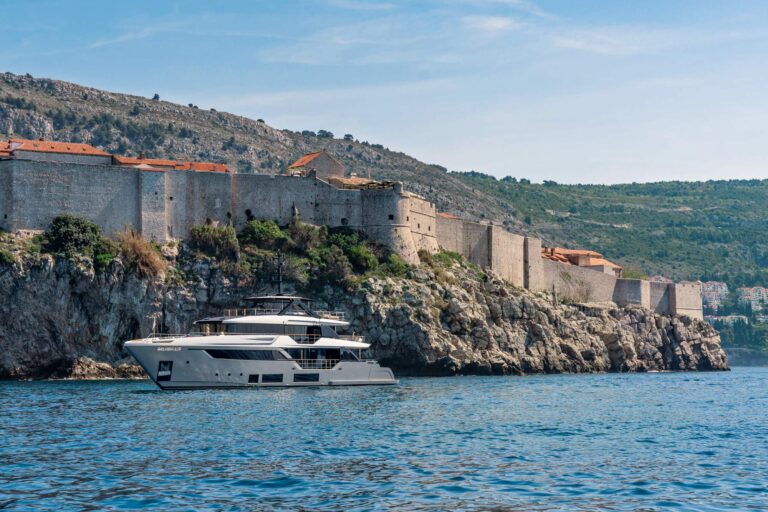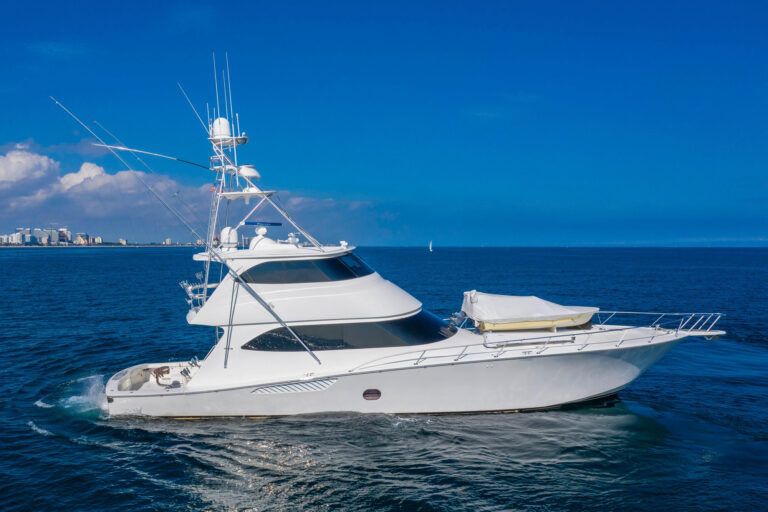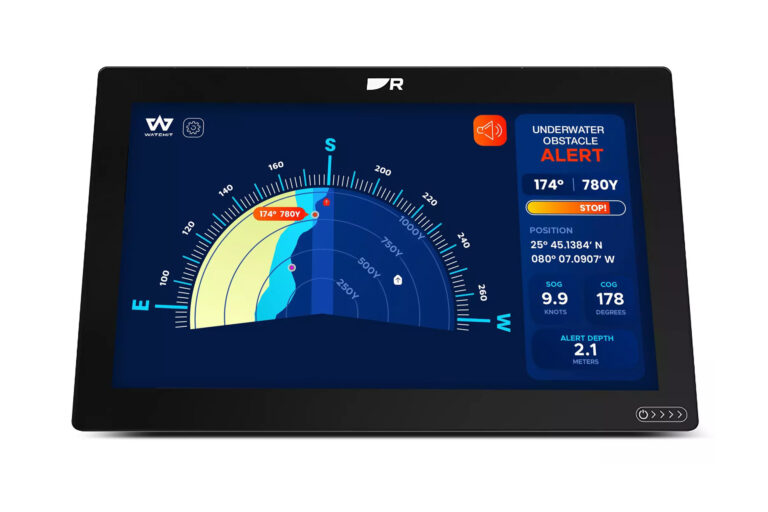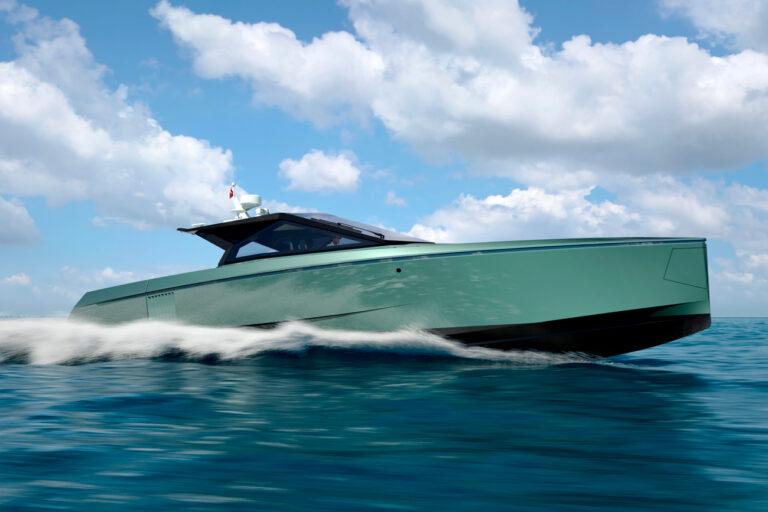If it’s better to be lucky than smart, then the question for every yachtsman is this: How do you make your own good luck? In addition to everyday seamanship, situational awareness may hold a piece of the answer. Situational awareness, a buzzword in the marine world (and in others), describes the notion of being perceptive to forces and events around you at many levels simultaneously. To that I would add what I call “foreshadowing”, the process of mentally preparing for the ever-branching tree of “what-ifs” that evolves while you’re navigating. Could these ideas be applied to yacht operations? Absolutely.
Close-quarters navigation, coupled with the lurking possibility of engine failure, provides one of the most apt scenarios. Let’s look at two cases involving vessels that lost engine power at critical moments and how situational awareness and foreshadowing contributed to different outcomes. I have borrowed examples slightly atypical of the recreational yachting world, but the guiding principle for the alert yachtsman is to learn as much as possible at the least cost. This sometimes entails extrapolating lessons from less-familiar spheres of watery activity.
In May 1995, the historic square-rigger Maria Asumpta was sailing along the rugged coast of Cornwall, England, in fine weather and light wind. The captain decided to head inshore to admire the scenery and to show off his vessel. When he realized that wind and tide were setting the vessel shoreward, he fired up his engines to maneuver clear. Moments later, the recently overhauled engines abruptly died. The 137-year-old vessel sailed into the cliffs, and three crew were lost. In court, a judge found that the captain had showed “contempt for the very dangers the crew trusted (him) to avoid. The route was navigationally feasible, but unnecessarily bold. The fatal conjunction of wind, tide, and the possibility of an otherwise unremarkable mechanical failure had not been duly contemplated in advance, leaving no room for the unexpected.
In a different case last January, the tanker Lion was transiting the Chesapeake Bay and Delaware Canal when the cooling-water intake became clogged with ice, triggering an automatic shutdown of the main engine. The ship was more than 700 feet long; the channel is 400 feet wide. Due to the confined waters, routine procedure called for having both anchors ready. But the pilot took an extra step: He insisted that crew be stationed on the foredeck, despite the bitter cold. When the pilot’s order came to release the anchors, there was no delay or confusion. The vessel was brought to a controlled stop about 50 yards short of a highway bridge that crosses the canal. It was a narrow miss, but a happy ending with little to excite the media.
Quick responses and, more important, forethought and preparation gave the crew a fighting chance to cope with the unexpected. Neither of these captains expected an engine failure, but through situational awareness and foreshadowing, one was better poised to make the best of a bad situation. In other words, he made his own good luck.
There are several ways these large-scale examples apply to everyday use of your yacht. We should start by recognizing that engine failure is a matter of when-not if-even for a well-maintained yacht. Seaweed, jellyfish and trash have all been known to clog engine intakes, even on large yachts. It’s safe to say that during the busy season at least one vessel a day loses engine power in every marina across the country. Usually, little comes of such incidents, but they are not rarities. When you’re operating in close quarters, therefore, it is important to make choices about speed, route and course with an eye out for the what-ifs.
The rules of the road state that you should navigate at a “safe speed in conditions of restricted visibility, but the notion need not be limited to that context. One opportunity to apply situational awareness and foreshadowing comes when you’re approaching the dock. Since engine failure could come at a critical moment, it behooves the skipper to use the minimum speed and power necessary under the prevailing conditions. When possible, you should approach the dock at a somewhat-acute angle rather than one that will result in T-boning the tiki bar if the engine abruptly quits. As we saw above, losing your engine doesn’t have to mean you’ve lost your options.
While slower is usually safer, some geographic points, such as rocky, exposed headlands, may be best cleared quickly, or by giving a wider berth. Lee shores of any kind should always be regarded with caution, whereas when the wind is coming off land, you may be able to cruise quite close to shore. Then if mechanical difficulties arise, you may be able to anchor comfortably or simply drift (so long as the next stop isn’t a couple of thousand miles away).
When encountering other vessels, particularly large commercial ships, avoid lingering in a vulnerable position. A large vessel may not be able to turn in time if you become dead in the water. Besides, your engine may be humming smoothly, but what about the other guy? What if his steering fails?
Finally, it’s important to know whether currents will carry you clear of danger or into it. You may be able to use that information to your advantage in a pinch. Conditions on the water are always changing, though, so mentally update your escape route as you proceed.
Should engine failure occur, one of the chief instruments of salvation is your anchor. When approaching confined waters-that is, before you enter them-ensure the anchor is ready. The more cumbersome the system and the less frequently it is used, the earlier you need to start the process. Check that random gear has not accumulated atop the chain, as that might cause it to foul. If someone can stand by on the foredeck, so much the better. Another thing to check before entering confined waters is that your VHF radio is properly adjusted. This eliminates lost time if you need immediate communication with another vessel. Too often I have seen skippers curse other boats for not responding while failing to note that their own volume knobs are turned all the way down, or that their radios are set to the wrong channel.
Engine failure, though always surprising when it happens, is something you should anticipate-in a general way. Don’t fixate on avoiding complex situations on the water at the expense of enjoying the time you spend there; you should feel safe in relying upon your equipment. Situational awareness and foreshadowing, however, can do much to make bad luck better should that reassuring rumble from below give way to a disturbing and unexpected silence.

